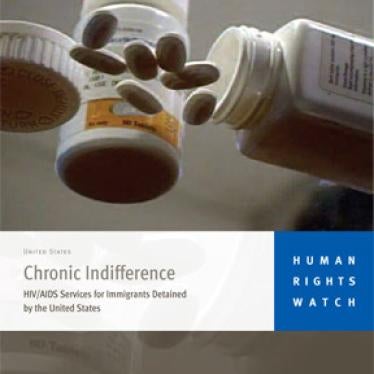President George W. Bush should publicly urge Texas to respect the order of the International Court of Justice and stop the executions of five Mexican nationals.
The International Court of Justice (ICJ) in The Hague is currently considering a case brought by Mexico, challenging death sentences in the United States of 51 Mexican nationals who were denied the right to contact Mexican consular officials after their arrest. On July 16, the ICJ ordered the United States to “take all measures necessary” to ensure that five of the 51 – José Ernesto Medellín Rojas, César Roberto Fierro Reyna, Rubén Ramírez Cárdenas, Humberto Leal García, and Roberto Moreno Ramos – are not executed before the court renders judgment in the case. All five are on death row in Texas, with Medellín set to be executed on August 5.
“The US government admits that the executions of the Mexican nationals would violate international law,” said David Fathi, US program director at Human Rights Watch. “President Bush should send a clear public message to stop these executions.”
Despite the ICJ order, Texas authorities plan to proceed with the execution of Medellín on August 5. A spokesman for Texas Governor Rick Perry stated: “The world court has no standing in Texas and Texas is not bound by a ruling or edict from a foreign court.” This position contradicts the US government, which recognizes that Washington is responsible under international law for the acts of its states and other political subdivisions.
“The execution of foreign citizens in violation of an ICJ order will place Americans abroad at risk,” Fathi said. “If the US disregards its legal obligations in this case, it will be hard pressed to argue that other countries should respect the rights of US citizens under arrest.”
In 2004, the ICJ ruled in Avena and Other Mexican Nationals that the United States had violated the Vienna Convention on Consular Relations by failing to inform 51 Mexican nationals of their right to contact Mexican consular officials after their arrest. The court ordered the US to provide “review and reconsideration of the convictions and sentences” of the men. Four years later, the United States has failed to provide such review in the vast majority of the 51 cases.
In March 2008, the US Supreme Court ruled that the Avena judgment constituted a binding legal obligation on the United States, but that legislation was required to make the judgment enforceable in US courts. Mexico then returned to the ICJ to seek clarification on the scope of US obligations under the 2004 judgment.
On July 14, Representative Howard Berman (D-CA) introduced HR 6481, the Avena Case Implementation Act of 2008, to implement the ICJ’s Avena judgment. The bill has been referred to the House Committee on the Judiciary. Human Rights Watch supports the passage of the bill.
Human Rights Watch opposes the death penalty in all circumstances because of its inherent cruelty and finality.







